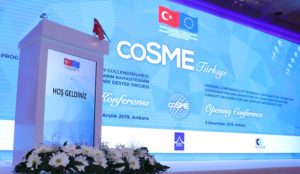
Technical Assistance for Supporting the Solution of Economic and Social Integration Problems in Diyarbakır, Şanlıurfa, Gaziantep, and Erzurum, as Major In-Migrant Destinations
Rapid migration in major urban areas, namely Diyarbakır, Şanlıurfa, Gaziantep and Erzurum (DGES), have adverse impacts in Turkey. To reduce these unfavourable effects, EKOSEP aimed to support social integration and environment-related infrastructure problems due to migration in the selected provinces in a multi-actor manner. Furthermore, it aimed to

Technical Assistance for Promotion of Life Long Learning (LLL)
Experts say that education is a life-long journey, and there is a need to promote the development and implementation of coherent and comprehensive strategies for life-long learning. In this regard, this project aimed to establish an institutional framework and capacity within LLL perspectives in line with EU practices

Increasing Competitiveness of Middle Black Sea Region TR83
Turkey’s Middle Black Sea region was set up in 2009 and is now well established; the Middle Black Sea Region Development Agency (OKA) carries out activities to support the economic and social development of Amasya, Çorum, Samsun and Tokat provinces. The main objective of this project was to

Technical Assistance for Enhancing Coordination and Promotion of the COSME Programme and Capacity Building for SME Support Infrastructure
The main objective of this contract is increasing the intermediary organisations and SMEs’ knowledge on COSME (Competitiveness of Enterprises and Small and Medium-sized Enterprises) and to enhance the coordination capacity in the country for effective participation in the programme and the Small Business Act (SBA) framework.

Monitoring Human Rights Situation and Advocating for Compliance with International Human Rights Framework
The main objective of this service contract is to strengthen Turkish civil society organisations’ role in the promotion and protection of human rights through expanded civil society monitoring and advocacy at various levels. The action will provide support to civil society organisations in order to document human rights

Technical Assistance for Promoting Women’s Employment in Turkey
The employability of women has been a challenging issue in Turkey for decades. The labour market of women needs to be improved in terms of the existing capacity to design, develop and implement policies to attract and retain more people in employment, particularly by increasing the participation of

